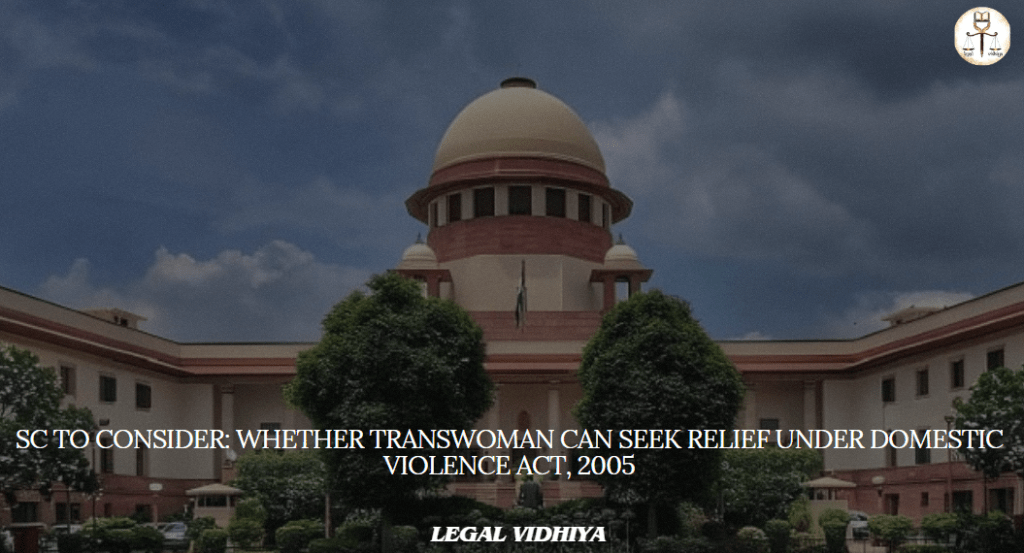
The Supreme Court has agreed to review whether a transgender person after becoming a woman by undergoing gender reassignment surgery can seek relief under Domestic Violence Act, 2005.
- The bench of Justice Vikram Nath and Rajesh Bindal admitted appeal filed by husband of Transwoman against the Bombay High Court’s order and listed case for hearing in January 2015
- The Supreme Court will review whether transgender women can be defined as an “aggrieved person” under the Domestic Violence Act.
The Issue:-
Transwoman and her male partner married in 2016. Differences arose between them after two years and they began to live separately and she asked maintenance from him.
- The lower court ordered husband to pay 12,000 per month to her as maintenance.
- The Husband appealed to Bombay High Court against lower court’s order as the Transwoman cannot be accepted as “aggrieved person” under Domestic Violence Act,2005
- He claimed that the Transwoman didn’t have a certificate issued under Transgender person’s act of 2019,so she cannot be considered as a woman under Domestic Violence Act.
High Court’s Decision
- The Bombay High Court upheld the lower court’s decision.
- Bombay HC said the word “Woman” also includes transgender persons who have changed gender and became a woman.
- The HC also said , “The object and purpose of Domestic Violence Act is to provide protection of the rights of women who are victims of Violence.
Relevant Sections
- Section 2(a) of Domestic Violence Act defines aggrieved person as a woman who faced ‘domestic violence’
- Section 2(f) of Domestic Violence Act defines domestic relationships as gender neutral and includes every person.
Case Name: NALSA vs UOI
Name : Asma Siraj, Course: LLB 3 year, College: Sanjeevni Law College,Intern under Legal Vidhiya
Disclaimer: The materials provided herein are intended solely for informational purposes. Accessing or using the site or the materials does not establish an attorney-client relationship. The information presented on this site is not to be construed as legal or professional advice, and it should not be relied upon for such purposes or used as a substitute for advice from a licensed attorney in your state. Additionally, the viewpoint presented by the author is of a personal nature




0 Comments